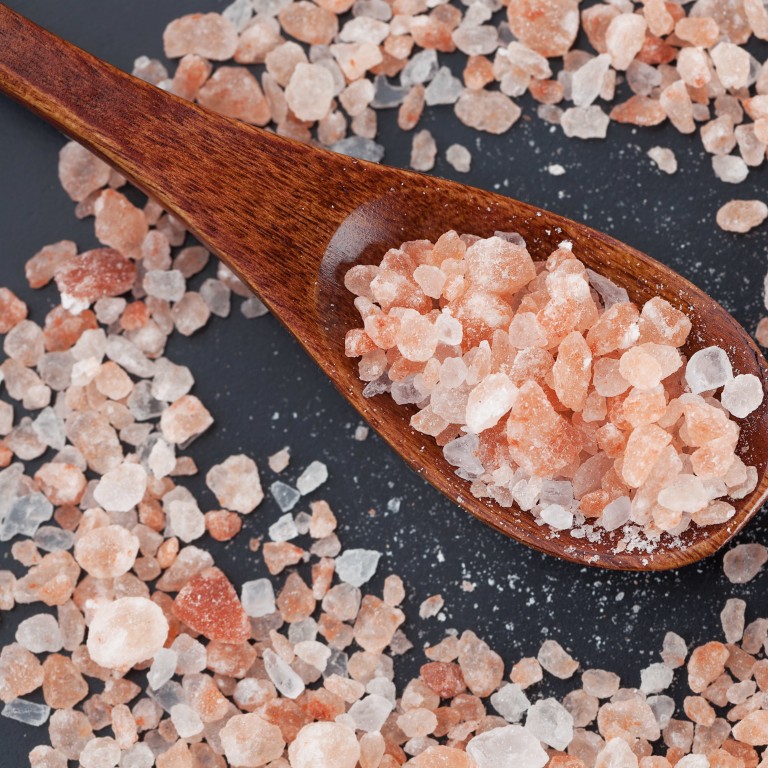
Hong Kong’s consumer watchdog finds metal contaminants in more than 60 per cent of salt tested from city’s shelves
- One Himalayan rock salt tested, which sells for HK$440 a pack, was found to have lead content exceeding international standards
- Microplastics were also found in sea salt samples for the first time, according to Consumer Council
More than 60 per cent of edible salt samples tested by Hong Kong’s consumer watchdog were found to contain metallic contaminants, with one containing chemicals that can cause cancer, according to the latest report from the body.
In a press conference on Wednesday, the Consumer Council said they conducted safety tests on 39 samples of pre-packaged edible salt found in the city, including sea salt, rock salt, table salt, iodised salt, lake salt and smoked salt. The prices of each package ranged from HK$2.6 to HK$440.
Most were found to contain additives, while some featured microplastics or even potentially harmful contaminants.
Twenty-five samples were found to contain at least one metallic contaminant, including two rock salt brands found to have metals exceeding the international standards.

One of them was the priciest salt tested – the HK$440 per pack Himalayan rock salt, which was found to contain lead content amounting to 3 milligrams per kilogram.
The other sample with metallic contaminants exceeding the international standards was a pack of rock salt that contained 0.55 milligrams of arsenic per kilogram.
The amount in both exceeds the maximum limits that will be applied in Hong Kong from November this year. The amounts also exceed the mainland standard and the maximum limit set by the United Nation’s Codex Alimentarius Commission, a body responsible for the implementation of international food standards.
Watchdog cautions over alcohol-based disinfectants as traces of methanol found
Consumer Council chief executive Gilly Wong Fung-han said the tests showed that expensive does not always equal better when it comes to food safety.
“[Our testing] obviously shows that the most expensive salt is not necessarily the best one. Instead, the quality of some simple and common table salts we tested were found to be of good quality,” she said.
Thirteen samples were found to contain no metallic contaminants, microplastics, PAHs or so-called plasticizers including coarse salt from First Choice that cost about HK$3 for 450 grams and table salt from Tesco that cost around HK$11 for 750 grams.
Meanwhile, a smoked salt sample the watchdog tested was found to contain polycyclic aromatic hydrocarbons (PAHs), a substance that can be carcinogenic.
The substance, amounting to 26.5 micrograms per kilogram in total, might have emerged during the smoking process rather than naturally from the raw materials, according to the council.
Some lip balms on sale in Hong Kong can damage your health, watchdog says
Wong said the council urged that the batch of smoke salt product in question, along with the batches containing metallic contaminants exceeding international standards, no longer be sold.
The council also found microplastics in sea salt samples for the first time. Four brands were detected to have micro-plastic content ranging from 114 micrograms per kilogram to 17,200 micrograms per kilogram.
“We found these microplastics only in the sea salt samples,” said Professor Nora Tam Fung-yee, chairwoman of the council's research and testing committee. “The main reason is the marine pollution caused by humans.”
Although it has not been conclusively proven that the intake of microplastics is harmful to the body, they can absorb certain harmful substances and release additives when they enter the food chain, Tam added. She urged people to reduce plastic waste at the source.
